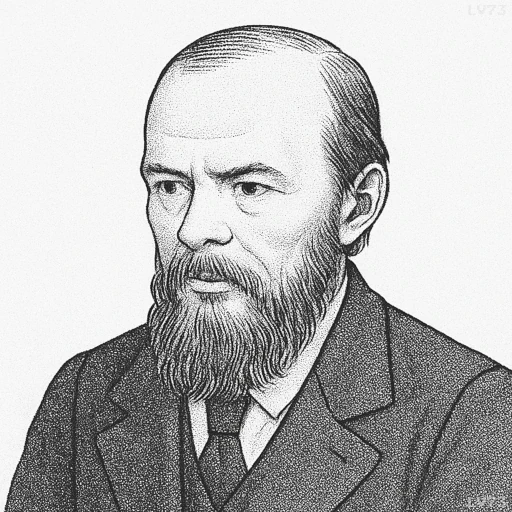“A real gentleman, even if he loses everything he owns, must show no emotion. Money must be so far beneath a gentleman that it is hardly worth troubling about.”

- November 11, 1821 – February 9, 1881
- Born in the Russian Empire
- Novelist, philosopher
table of contents
Quote
“A real gentleman, even if he loses everything he owns, must show no emotion. Money must be so far beneath a gentleman that it is hardly worth troubling about.”
Explanation
Dostoevsky’s quote presents a view of dignity and self-control that places character above material wealth. For Dostoevsky, the “real gentleman” embodies the ideal of a person whose moral integrity and personal honor are so strong that external circumstances, particularly financial ones, have little effect on his inner composure. The gentleman’s true worth is not in what he owns or how much he has, but in his ability to remain steadfast, gracious, and unshaken in the face of hardship. The quote reflects a belief that self-mastery—the ability to control one’s emotions, particularly in situations of loss or adversity—defines true nobility of character. Even in moments of personal or financial crisis, the gentleman does not succumb to despair or anger, but maintains a calm equanimity that transcends the fluctuations of wealth.
This perspective on a gentleman’s character reflects Dostoevsky’s deep interest in the moral struggle and the complex nature of human virtue. Many of his characters are torn between material concerns and the spiritual or ethical dimensions of life. Characters like Prince Myshkin in The Idiot demonstrate a kind of moral purity and grace that transcends the pursuit of wealth. Myshkin, despite being a man of noble birth, is depicted as someone who is more concerned with moral goodness than with his material status. His lack of attachment to wealth and his ability to remain gentle and calm even in difficult situations embody the ideal of a “real gentleman” as described in the quote.
In the context of modern life, the quote speaks to a critique of contemporary consumerism and the overemphasis on material wealth. In a world where financial success is often equated with personal value and status, Dostoevsky’s ideal of the gentleman offers a counterpoint—one that suggests true worth is found in character and spiritual strength, not in possessions. Today, the quote might be applied to those who, despite experiencing financial setbacks or challenges, retain their dignity, composure, and moral compass. It also reflects the tension between materialism and spirituality that continues to be relevant, especially as society grapples with issues like economic inequality, the pursuit of success, and the importance of personal values over external wealth. Ultimately, Dostoevsky’s ideal gentleman reminds us that inner peace and moral fortitude are far more valuable than the transient nature of money or material possessions.
Would you like to share your impressions or related stories about this quote in the comments section?



